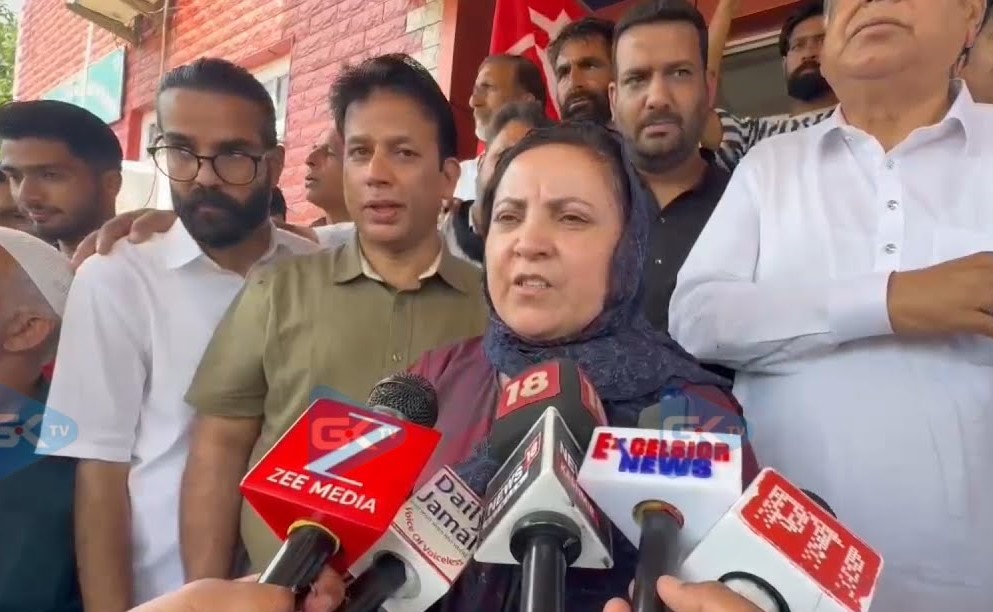Early school hours trigger criticism from parents, teachers, and students; Education Minister Sakina Itoo assures the decision is not final.
By: Javid Amin | Srinagar | 08 July 2025
Just a day after schools across Kashmir reopened on July 8 following a 15-day summer break, the Education Department’s decision to enforce revised school timings has sparked a storm of criticism. Students, teachers, and parents alike have voiced concern over the practicality and fairness of the move.
In an apparent damage-control statement, Education Minister Sakina Itoo clarified that the new timings were not final and may be revised based on public feedback.
“These revised school timings are not final. If we feel there’s a need to make changes, we will do it,” said Itoo during a public interaction in Kulgam.
What Are the Revised Timings?
- Municipal Areas: 7:30 AM to 11:30 AM
- Non-Municipal (Rural) Areas: 8:00 AM to 12:00 Noon
The decision was originally framed to avoid the peak heat hours, given the severe heatwave that gripped the region in early July. However, implementation on the ground has faced serious hurdles.
Why the Backlash?
While the intent may have been safety and syllabus completion, the execution has stirred discontent:
- Working parents struggle with early drop-offs and pickups.
- Teachers and staff report lack of basic infrastructure such as fans, clean drinking water, or transport.
- Young children, particularly in early grades, are being forced to wake up as early as 5:30 AM.
“How can you expect a six-year-old to be alert in class before sunrise?” asked Naseema Bhat, a parent from Baramulla.
Minister’s Clarification: “We’re Listening”
During her visit to Kulgam, Minister Itoo emphasized:
- The government is receiving daily feedback from parents, teachers, and civil society.
- The primary focus remains on academic continuity and well-being.
- Adjustments will be considered after reviewing ground-level reports.
“We are not here to create inconvenience. If this model doesn’t work, we’ll adapt,” she stated.
Why the Rush to Reopen?
According to Itoo, the urgency to resume classes is tied to the November academic session, where final exams begin in October. The delay due to summer break and heatwave had already disrupted the teaching schedule.
To bridge the learning gap:
- Two hours of online classes have been mandated (except for primary students).
- Students are to take a one-hour rest break after returning home before logging in.
This hybrid model has triggered additional concerns regarding device availability, teacher burnout, and digital access in rural areas.
Public Concerns: Practicality vs. Policy
Parents’ Concerns:
- Inconsistent school transport
- Lack of communication and sudden rollout
- Early morning drop-offs create scheduling conflicts for working families
Teachers’ Feedback:
- Rural schools lack fans, power backup, and sanitation
- Longer duty hours due to physical and online sessions
- Struggles with student attention and fatigue
Students’ Voices:
- Difficulty waking up early
- Complaints of tiredness and low concentration during early classes
- Confusion about online class structure and timings
“We already lost summer break to the heat. Now we lose sleep too,” said Areeba Jan, a Class 9 student from Anantnag.
What Can Be Done? Experts Suggest Alternatives
Urban educationists and child psychologists are urging the department to:
- Stagger school hours by age group
- Delay reopening in districts facing infrastructure issues
- Provide autonomy to schools to adjust based on local weather
- Enhance parental consultation and transparency
“We need a locally responsive, child-centric approach—not a one-size-fits-all policy,” said Dr. Nighat Qureshi, a Srinagar-based educationist.
Civil Society Weighs In
The controversy has stirred debate among social activists and community leaders:
Advocate Zahid Wani, child rights expert:
“Uniform timings ignore Kashmir’s geographical and economic diversity. This needs to be revisited immediately.”
Saba Malik, from a local parent-teacher forum:
“This isn’t about syllabus. It’s about the health, happiness, and development of our children.”
Several NGOs have called for a public dialogue between the education department and stakeholders.
What’s Next?
- A review committee may be formed to assess feasibility and gather structured feedback.
- Regional education officers have been tasked with sending compliance and concern reports.
- Parent associations in Kupwara, Baramulla, and Pulwama have submitted memoranda requesting changes.
Minister Itoo has assured that the department will act swiftly if feedback indicates widespread disruption.


